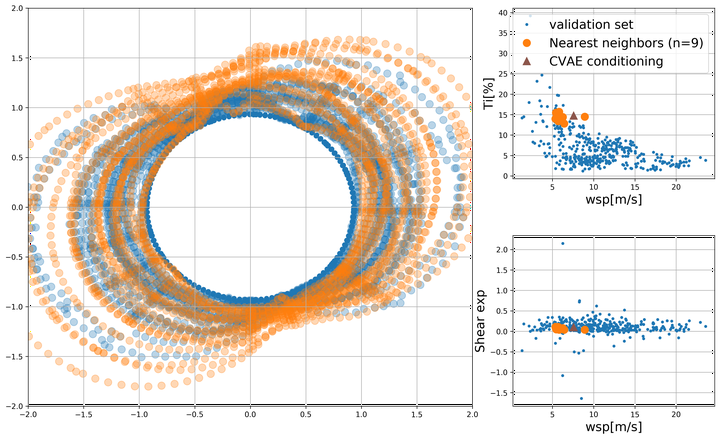Conditional variational autoencoders for probabilistic wind turbine blade fatigue estimation using Supervisory, Control, and Data Acquisition data

Abstract
Wind turbine fatigue estimation is based on time-consuming Monte Carlo simulations for various wind conditions, followed by cycle-counting procedures and the application of engineering damage models. The outputs of the fatigue simulations are large in volume and of high dimensionality, as they typically consist of estimates on finite-element computational meshes. The strain and stress tensor time series, which are the primary quantities of interest when considering the problem of fatigue estimation, are dictated by complex vibration characteristics due to the coupled effect of aerodynamics, structural dynamics, geometrically non-linear mechanics, and control. A Variational Auto-Encoder (VAE) is trained in order to model the probability distribution of the accumulated fatigue on the root cross-section of a simulated wind turbine blade. The VAE is conditioned on historical data that correspond to coarse wind-field measurement statistics, such as mean hub-height wind speed, standard deviation of hub-height wind speed and shear exponent. In the absence of direct measurements of structural loads, the proposed technique finds applications in making long-term probabilistic deterioration predictions from historical Supervisory, Control, and Data Acquisition (SCADA) data, while capturing the inherent aleatoric uncertainty due to the incomplete information on strain time series of the wind turbine structure, when only SCADA data statistics are available.